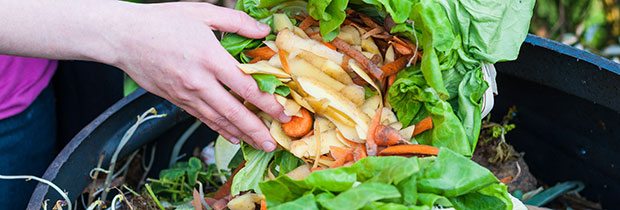Your weekly digest of policy news, funding competitions, and calls for evidence.
What’s been in the news?
International Day of Awareness on Food Loss and Waste Reduction
Last Tuesday (29 September) marked the first International Day of Awareness on Food Loss and Waste Reduction. Designated by the United Nations General Assembly, the aim of the day is to raise awareness of the importance of the food waste problem and its possible solutions at all levels. Read more here.
Although there have been growing calls for an integrated solution to this problem, the COVID-19 pandemic has brought many significant challenges to food security due to the disrupted supply chains and the closure of the hospitality industry.
Ahead of this occasion, the Commissioner for Health and Food Safety, Stella Kyriakides, made the following statement:
‘The figures speak for themselves: in the EU, it is estimated that 20% of all food we produce is lost or wasted, yet at the same time 33 million people cannot afford a quality meal every second day. There is no excuse for food waste. It leaves the most vulnerable citizens exposed. It is detrimental to the environment. And it has huge economic cost. Surplus food should feed people who need it, not go in the bin.’
New ban on plastic straws and stirrers
As of 1 October 2020, the use of plastic straws, stirrers and plastic-stemmed cotton buds has been banned in England. The ban is part of the UK government’s pledge to protect the environment in its ’25 Year Environment Plan’.
Environment Secretary George Eustice said:
‘Single-use plastics cause real devastation to the environment and this government is firmly committed to tackling this issue head on.
We are already a world-leader in this global effort. Our 5p charge on single-use plastic bags has successfully cut sales by 95% in the main supermarkets, we have banned microbeads, and we are building plans for a deposit return scheme to drive up the recycling of single-use drinks containers.’
In a year, it is estimated that 4.7 billion plastic straws are used, many of which end up in the world’s oceans.
Dr Laura Foster, Head of Clean Seas at the Marine Conservation Society, said:
‘It’s fantastic news that the ban on plastic cotton bud sticks, stirrers and straws is now in place. Only with ambitious policy and forward-thinking brands and companies, can we truly stop the plastic tide.’
UK embarks on ‘Genome UK’ strategy
Last week, the government announced the launch of Genome UK, a new strategy which sets out to provide patients with an advanced genomic healthcare system. The treatments offered will be predictive and tailored to patients via advanced genome sequencing.
Health and Social Care Secretary Matt Hancock:
‘Genomics has the potential to transform the future of healthcare by offering patients the very best predictive, preventative and personalised care.
The UK is already recognised around the world as a global leader in genomics and this strategy will allow us to go further and faster to help patients right here in our NHS and give them the best possible chance against a range of diseases.’
The strategy focuses on 3 key areas: diagnosis and personalised medicine, prevention and research.
To launch the strategy, a UK-wide study, funded by UKRI and led by the University of Edinburgh, will isequence 20,000 genomes of people who have recovered from COVID-19 in the most severe circumstances. Data will be compared to those who did not require hospitalisation for COVID-19.

Public Sector Procurement of Food
Evidence is sought after which address questions around the government’s current procurement rules including achieving environmental outcomes, encouraging healthy eating and supporting local suppliers e.g. SMEs.
Deadline: 31 October 2020
Innovate UK Smart Grants: August 2020
UK registered organisations can apply for a share of up to £25 million IUK funding for disruptive innovations in R&D. Projects must include at least one SME and can last between 6 and 36 months.
Deadline: 25 November 2020
View via the government website
Faraday Battery Challenge: Innovation R&D, Round 4
UK registered business can apply for a grant share of up to £10 million for feasibility and R&D projects that contribute to the innovation in electric vehicle battery technology.
Deadline: 9 December 2020
View via the government website
NATEP: helping SMEs innovate in aerospace Autumn 2020
UK registered micro enterprises and SMEs can apply for up to £2.5 million as part of funding towards projects in civil aerospace research. Projects can last between 12 and 18 months.
Deadline: 18 November 2020
View via the government website
ATI Programme strategic batch: expression of interest October 2020
Funding available for projects to contribute to a competitive UK civil aerospace sector. Grants available are part of a government and industry £3.9 billion deal.
Deadline: 21 October 2020
View via the government website
ISCF Transforming foundation industries: Building a resilient recovery
Projects that support recovery and growth of the UK’s foundation industries could be eligible for a grant of up to £8 million. Projects must last between 3 and 12 months and start by 1 April 2021.
Deadline: 4 November 2020
IETF industrial energy efficiency and decarbonsiation studies
This competition aims to support projects for feasibility and engineering studies into energy efficiency and decarbonisation.
Deadline: 28 October 2020




